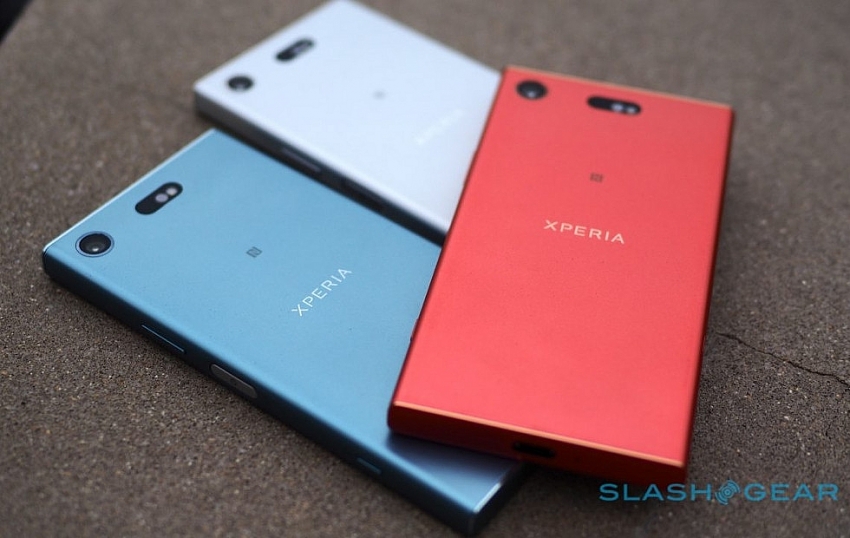Sony might stop making phones
 |
| Smart phone manufacturing was not mentioned in Sony Corporation's three-year plan |
Sony has a new chief executive officer who replaces CEO Kaz Hirai which means a new strategic direction for the company's future, which might include a move away from consumer gadgets. This might well mean that the company is stepping away from making not only phones, but also the popular PlayStation and Sony cameras, according to Reuters.
This move takes place only two years after Sony’s new smart phone factory in Thailand started operations. This was the first smart phone manufacturing plant in 20 years, replacing the old manufacturing line of the struggling smart phone maker.
New Sony CEO Kenichiro Yoshida has just unveiled a new three-year plan for the company, with a focus on services and other core areas of Sony profitability. Sony makes most of the camera sensors for the camera and cameraphone industries, and it is making billions from it.
On the other hand, Sony’s mobile phone market share has been rapidly shrinking. The company still has a strong brand name and great recognition among customers, but it only sold around 10 million phones in 2018, down from 22.5 million in the past year, and Sony just cannot find a foothold outside of Asia.
According to Reuters, the sales of the popular PlayStation 4 have gone down by 18 per cent in the most recent quarter and executives admit that the PS4 is approaching the end of its lifecycle. The PS4 is still a great business for Sony because of gaming revenues, streaming, and so on, but the console itself is not the only revenue driver.
In parallel with stepping away from phones and consumer gadgets, the new CEO announced to pay about $2.3 billion to gain control of EMI, becoming the world’s largest music publishers in an industry that has found new life on the back of streaming services.
Sony has been running the business since then, and will buy a 60 per cent stake owned by Mubadala Investment Company, lifting its ownership to around 90 per cent.
The deal is part of Yoshida’s mission to make revenue streams more stable with rights to entertainment content—a strategy that follows a major revamp by his predecessor, which shifted Sony’s focus away from low-margin consumer electronics.
Earlier, in 2008, Sony closed its factory in Vietnam, stopped the production of all TV light bulbs to import completed TV sets after 14 years of operation. This decision was a result of business losses and followed the global business strategy of Sony Corporation, according to local media.
Sony developed its first factory in Vietnam in 1994 in joint venture with Viettronics Tan Binh JSC. Sony was one of the first multi-national electronic corporations to enter the country. The total investment of Sony in the Ho Chi Minh City factory was $6.6 million at first, which was then raised to $16.6 million.
Sony Vietnam is the first foreign-invested electronics firm closing a factory to focus on importing. This was also the result of the losing competition with Apple (US) and Samsung (South Korea) in consumer electronics, especially mobile phones.
While Sharp and Panasonic quickly turned to home electronics, Sony focused on entertainment equipment such as radios, cameras, and TVs, but smart phones have already integrated all these functions. Music streaming may be the new orientation of Sony to recover its reputation.
What the stars mean:
★ Poor ★ ★ Promising ★★★ Good ★★★★ Very good ★★★★★ Exceptional
Related Contents
Latest News
More News
- PM outlines new tasks for healthcare sector (February 25, 2026 | 16:00)
- Ho Chi Minh City launches plan for innovation and digital transformation (February 25, 2026 | 09:00)
- Vietnam sets ambitious dairy growth targets (February 24, 2026 | 18:00)
- Masan Consumer names new deputy CEO to drive foods and beverages growth (February 23, 2026 | 20:52)
- Myriad risks ahead, but ones Vietnam can confront (February 20, 2026 | 15:02)
- Vietnam making the leap into AI and semiconductors (February 20, 2026 | 09:37)
- Funding must be activated for semiconductor success (February 20, 2026 | 09:20)
- Resilience as new benchmark for smarter infrastructure (February 19, 2026 | 20:35)
- A golden time to shine within ASEAN (February 19, 2026 | 20:22)
- Vietnam’s pivotal year for advancing sustainability (February 19, 2026 | 08:44)

 Tag:
Tag:




















 Mobile Version
Mobile Version